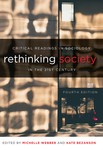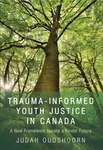We don’t actively support Internet Explorer
It appears that you are using Internet Explorer, which has been discontinued by Microsoft. Support has ended for versions older than 11, and as a result you may face security issues and other problems when using it.
We recommend upgrading to a newer browser such as Firefox, Google Chrome, or Edge for a much better experience across the web.
While this site may work with Explorer, we are not testing and verifying it, so you may run into some trouble or strange looking things.
Overview
Uniting the voices of twenty-two experts from academic, government, and civil sectors who study and help search for missing persons in Canada and internationally, Derek Congram’s new collection responds to growing public awareness of persons who have disappeared due to armed conflict, repressive regimes, criminal behaviour, and racist and colonial policies towards Indigenous persons and minority populations.
Missing Persons centres its attention on the people who seek others, and explores how scientists, law-enforcement agents, and researchers serve and relate to those who miss. This multidisciplinary volume both attends to the varied circumstances of disappearance and illustrates how disparate contexts connect, making for a valuable comparative resource in criminology and forensic anthropology, science, and psychology classrooms.
Table of Contents
Foreword by Professor Emeritus Dr. Mark Skinner
Foreword by Dr. Marie Wilson, Commissioner
Acknowledgments
Introduction: Missing Persons and Those Who Seek Them: Questions of Perspective and Place
Derek Congram
SECTION I: CONTEXTS AND PERSPECTIVES
Chapter 1: Perspectives on the Missing: Residential Schools for Aboriginal Children in Canada
Alex Maass
Chapter 2: Absent Bodies, Absent Knowledge: The Forensic Work of Identifying Srebrenica’s Missing and the Social Experiences of Families
Sarah Wagner and Rifat Kešetović
Chapter 3: The Missing Files: The Experience of the International Committee of the Red Cross
Shuala M. Drawdy and Cheryl Katzmarzyk
Chapter 4: From Mass Graves to Human Rights: The Discovery of Forced Disappearances in Contemporary Spain
Francisco Ferrándiz and Emilio Silva Barrera
Chapter 5: Psychosocial Perspectives on the Enforced Disappearance of Indigenous Peoples in Guatemala
Mónica Esmeralda Pinzón González
Chapter 6: Collection, Curation, Repatriation: Exploring the Concept of Museum Skeletal Populations as Missing Persons
Janet Young
SECTION II: METHODS USED TOWARDS FINDING AND IDENTIFYING THE MISSING
Chapter 7: When X Doesn’t Mark the Spot: Historical Investigation and Identifying Remains from the Korean War
Michael R. Dolski
Chapter 8: Psychosocial Aspects of Interviewing and Self-Care for Practitioners
Vedrana Mladina
Chapter 9: A Review of Research into the Spatial Behaviour of Murderers and Implications for Investigations Involving Missing Murder Victims
Samantha Lundrigan
Chapter 10: Mapping the Missing: A New Approach to Locating Missing Persons Burial Locations in Armed Conflict Contexts
Derek Congram, Arthur Green, and Hugh Tuller
Chapter 11: Leading Change and Innovation in Missing Person and Unidentified Remains Investigations in Canada
Carole Bird
Chapter 12: Missing in the US-Mexico Borderlands
Robin Reineke and Bruce E. Anderson
Chapter 13: The Evidentiary Value of Cultural Objects from Mass Graves: Methods of Analysis, Interpretation, and Limitations
Ariana Fernández Muñoz and Derek Congram
Chapter 14: Farm to France: The Identification of Canada’s Missing Winnipeg Soldiers from the Amiens Battlefield
Laurel Clegg
Afterword: The Interconnectedness of Missing Persons as a Problem and as a Solution
Derek Congram, Luis Fondebrider, and Eleonor Fernández
Contributor Biographies
Index







